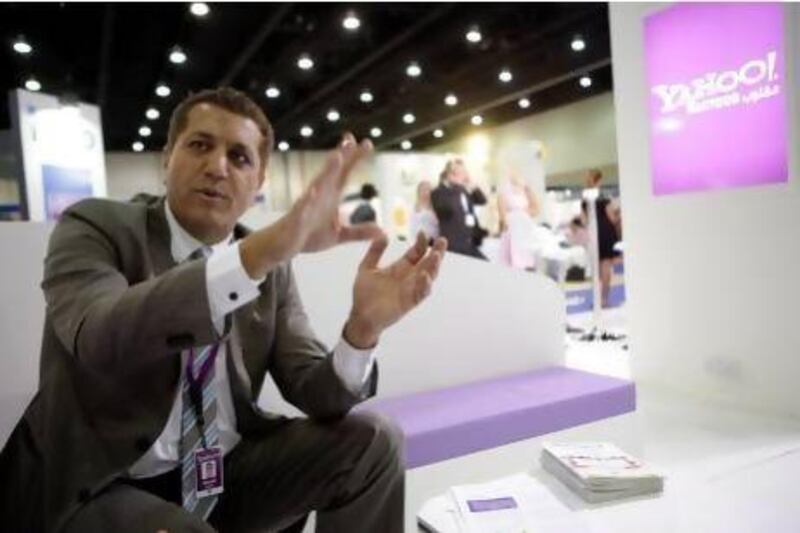The way people everywhere in the world watch TV is about to change, and the Arabian Gulf region will be in the vanguard.
That's the view of Ahmed Nassef, the 47-year-old former vice president and managing director of Yahoo Middle East and Africa, who left the company last month to launch his own "social TV" start-up, Telfez, with offices planned in Dubai and Palo Alto, California.
In countries like the UAE, he explains, people spend a lot of time watching their favourite shows, but they are interacting while they do it: tweeting their shock at the latest Game of Thrones episode, getting behind an Arab Idol contestant on Facebook, or debating The Newsroom's dialogue on message boards. What Telfez is aiming to do, Mr Nassef says, is to bring all this activity together in one place.
Once it's activated, he says, the Telfez app on your digital device will automatically "listen" to the TV show you're watching, recognise it using the same sort of technology as an app like SoundHound, and "check you in" to the show. "Say I'm watching a Saudi League football game," he says.
"As soon as I check in, all of my friends on Facebook or Twitter or Tumblr will know that I've checked into that programme."
Information on the show will become available on the device: scores and statistics if it's a football game, for instance, or information about contestants if it's a reality show. Users should be able to participate in polls and ask questions directly to presenters.
"It's about sharing and discovery," Mr Nassef says. Sponsored content and advertisements airing during the show may also be extended or complemented on the app, opening up an additional revenue stream for the company.
It's a convincingly detailed picture, and Mr Nassef has the Silicon Valley credentials to pull it off. After growing up in California and getting a master's degree in "near eastern studies" in the same state, he dived into the world of software start-ups in the late 90s, working for a company called Omnipod, which faltered when the dot-com bubble burst in 2000.
Next, he moved on to Maktoob, an internet-services company based in Jordan that started the first email service for both English and Arabic users, and was bought by Yahoo in 2009. The following four years, he says, have been "an incredible experience", but he started "getting that itch".
"I'd been thinking a lot about taking advantage of all the opportunities that exist in the [Middle East]," he says. "There are so many opportunities in digital media and entertainment, and the high adoption in mobiles and tablets multiplies those opportunities.
"I really missed that start-up environment: being able to take quick decisions and really own your destination." He made the decision to resign in March and officially left Yahoo in June.
The idea is for Telfez to be a "global initiative," but whereas most companies start in mature markets, such as the United States and Western Europe, and move into emerging markets such as the Middle East, Mr Nassef says, "we're flipping that around". In the Middle East, TV tends to be watched live rather than recorded and played back, which is more common in the US, and there's a high number of hand-held digital devices per capita. "We're looking at the Middle East as the first foothold," he says.
While the tech side of things will unfold in Palo Alto, where Mr Nassef and his business partner Tamer Rashad are based, Mr Nassef says that Telfez will have a "presence" in Dubai, which will include distribution and advertising teams and people creating localised content.
While the focus for the next few months is on the technology, he says, "very soon after that we'll get the business started in terms of distribution and audience building."
If it develops as planned, Telfez will capitalise on the way that people use TV to bond with one another. "Arabs are very social people," he says, which he's hoping will help with the app's success in the Middle East.
"During Ramadan, if you go to Arab countries at night after breaking fast, you'll see families getting together and watching soap operas. It's a communal experience."





